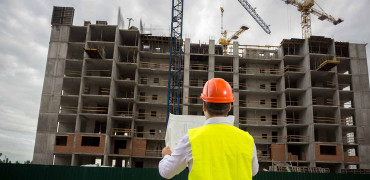Social housing providers have long been at the forefront of renewable energy adoption.
Driven by initiatives like the now-defunct Code for Sustainable Homes, housing associations (HAs) led the way in removing solid fuel and oil heating from their estates, improving energy efficiency, and tackling fuel poverty.
But as the UK moves towards its net zero targets, the next big challenge is transitioning away from gas heating – a task that requires significant financial support.
The government’s Boiler Upgrade Scheme (BUS) currently offers homeowners, private landlords and small businesses grants of up to £7,500 to replace gas boilers with heat pumps.
However, housing associations are excluded from this funding, making it even harder for them to decarbonise their housing stock.
Given the scale of the challenge, should the BUS be extended to social housing? And what additional support do housing associations need to achieve a just and effective transition?
HA’s can lead the way to a fair and effective transition to low-carbon heating.
Social housing and the net zero challenge
The UK’s social housing sector is home to over four million households, many of whom are among the most vulnerable to fuel poverty.
Over the years, HAs have embraced renewable energy technologies – installing solar panels, heat pumps, biomass boilers, and district heating schemes.
This proactive approach has not only cut carbon emissions but has also reduced reliance on expensive and inefficient heating systems, improving comfort for tenants and helping to tackle fuel poverty.
However, the vast majority of social homes still rely on gas boilers. With heat pumps seen as the primary low-carbon alternative, housing associations face a difficult financial and logistical task in replacing them at scale.
Unlike private homeowners, HAs cannot spread the cost over long-term property value increases, meaning every investment must be carefully balanced against affordability for tenants and long-term asset management.
The cost barrier
The biggest obstacle to replacing gas boilers with heat pumps is cost. The upfront cost of a heat pump installation—including necessary home upgrades such as insulation and larger radiators – can be anywhere from £8,000 to £15,000 per home, compared to around £2,500 to £4,000 for a new gas boiler.
While running costs are expected to fall as the electricity grid becomes greener and the government addresses the ‘spark gap’ (the price imbalance between gas and electricity), the high initial investment remains a major hurdle.
If housing associations were eligible for the £7,500 grant under the BUS, it would significantly reduce the financial strain and allow them to invest in heat pump installations at scale.
With more than 1.5 million social homes needing upgrades, even a phased approach – similar to the Public Sector Decarbonisation Scheme (PSDS), also known as Salix Funding – could help ensure a steady and achievable transition.
Learning from SALIX funding
The PSDS, which provides funding to decarbonise public buildings such as schools, libraries, council offices, and leisure centres, offers a useful model.
Although oversubscribed every year since it started in 2020, it has been instrumental in reducing carbon emissions across the public sector. Phase 4 will open for applications in mid-October of 2025.
A similar annual funding mechanism for housing associations – perhaps with a set number of heat pump installations funded each year – could provide the financial certainty needed to plan long-term upgrades.
By learning from the PSDS, a targeted funding programme for social housing could:
- Prioritise the worst-performing homes first, tackling the biggest sources of carbon emissions and fuel poverty.
- Encourage bulk procurement, driving down costs through economies of scale.
- Ensure long-term certainty, allowing housing associations to plan upgrades over multiple years rather than relying on one-off grants.
The added benefits of heat pumps
While the transition away from gas presents financial and logistical challenges, heat pumps offer clear benefits to tenants and landlords alike.
1. Better Heating Distribution
Unlike gas boilers, which often leave some rooms colder than others, heat pumps provide consistent warmth throughout the entire home. This means tenants are less likely to rely on inefficient and expensive secondary heating sources like electric fan heaters.
2. Reduced Damp and Mould
Mould and damp are major concerns in social housing, often exacerbated by uneven heating patterns and poor ventilation. Because heat pumps maintain a steady indoor temperature, they help reduce condensation and prevent long-term damage to the building fabric. This not only benefits tenants’ health but also lowers maintenance costs for housing associations.
3. Future-Proofing Homes
With the government set to ban gas boiler installations in new homes from 2025, the long-term future of gas heating is uncertain. By switching to heat pumps now, housing associations can avoid expensive retrofits later, ensuring their properties remain compliant with future regulations.
In summary
If the UK is serious about decarbonising home heating, social housing cannot be left behind.
Housing associations have already proven their commitment to sustainability, leading the way on renewables and tackling fuel poverty. However, without targeted financial support, the transition away from gas will be slow and difficult.
Extending the Boiler Upgrade Scheme or creating a dedicated funding programme for social housing could unlock large-scale heat pump adoption, benefiting both tenants and the long-term sustainability of the housing stock.
With the right backing, housing associations can once again lead the way – this time, in delivering a fair and effective transition to low-carbon heating.
Joe Bradbury is digital editor of Housing Association magazine




